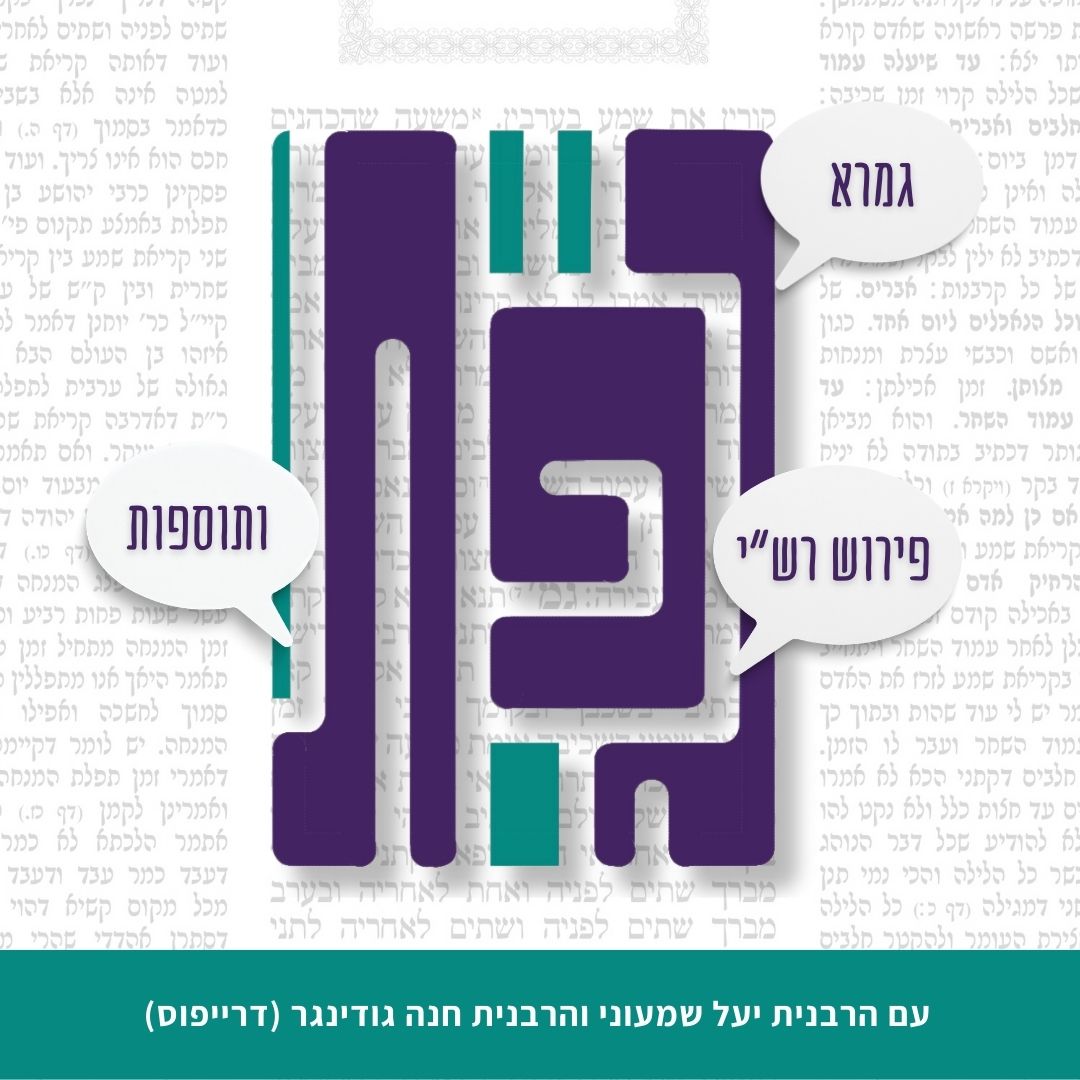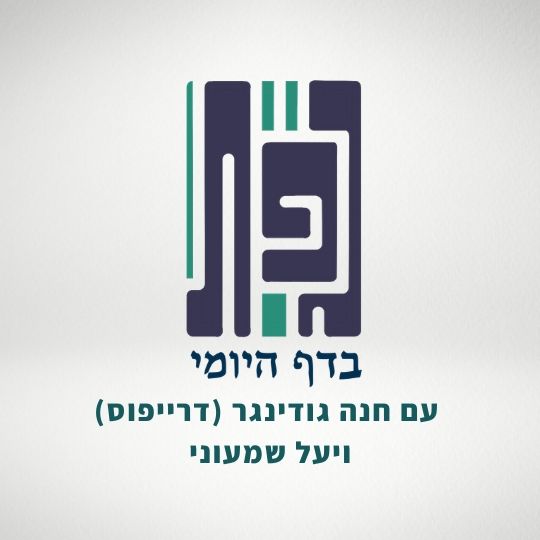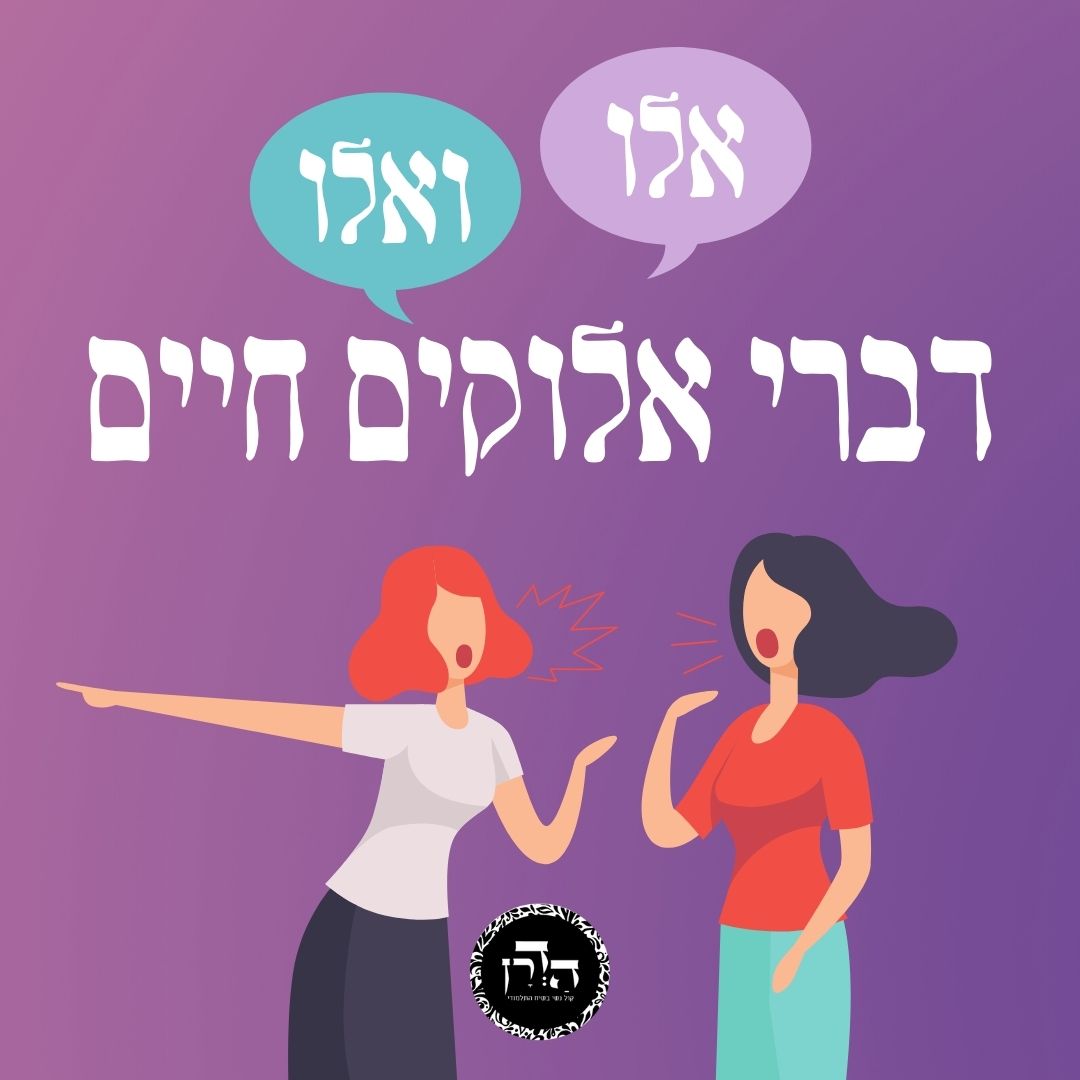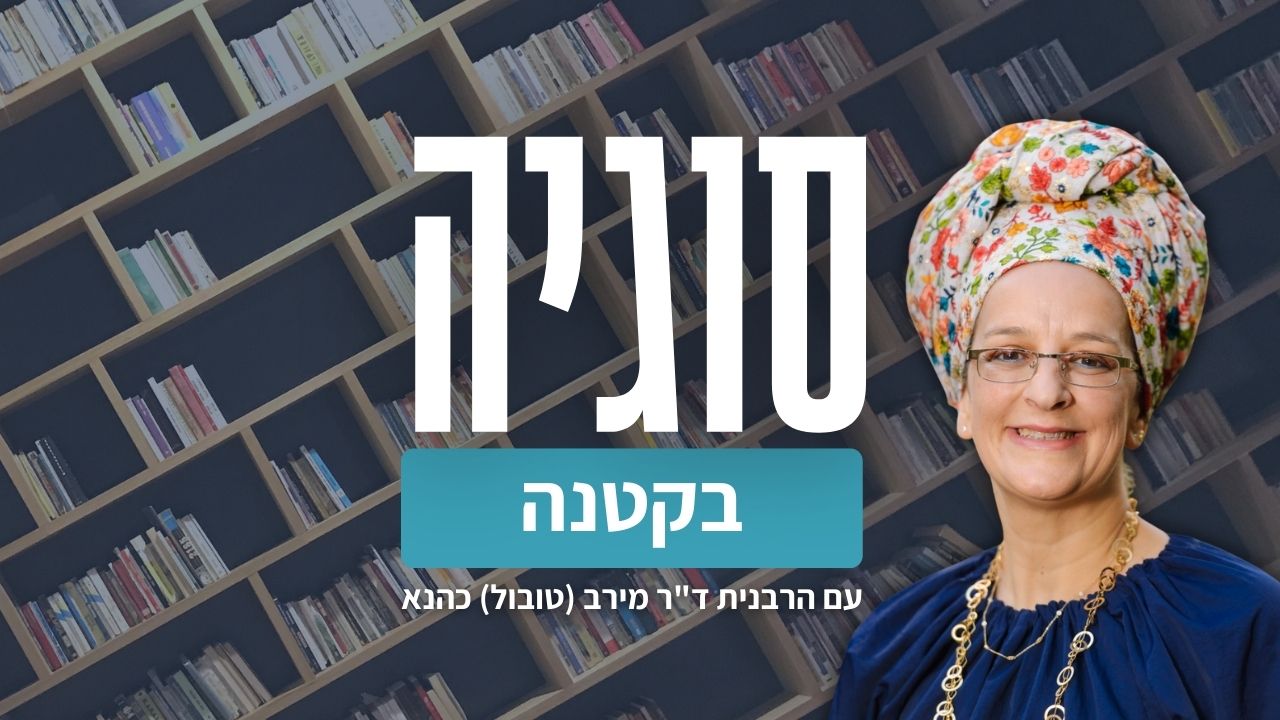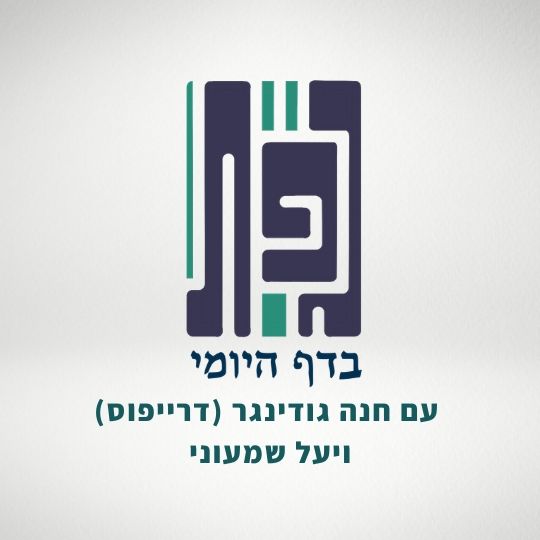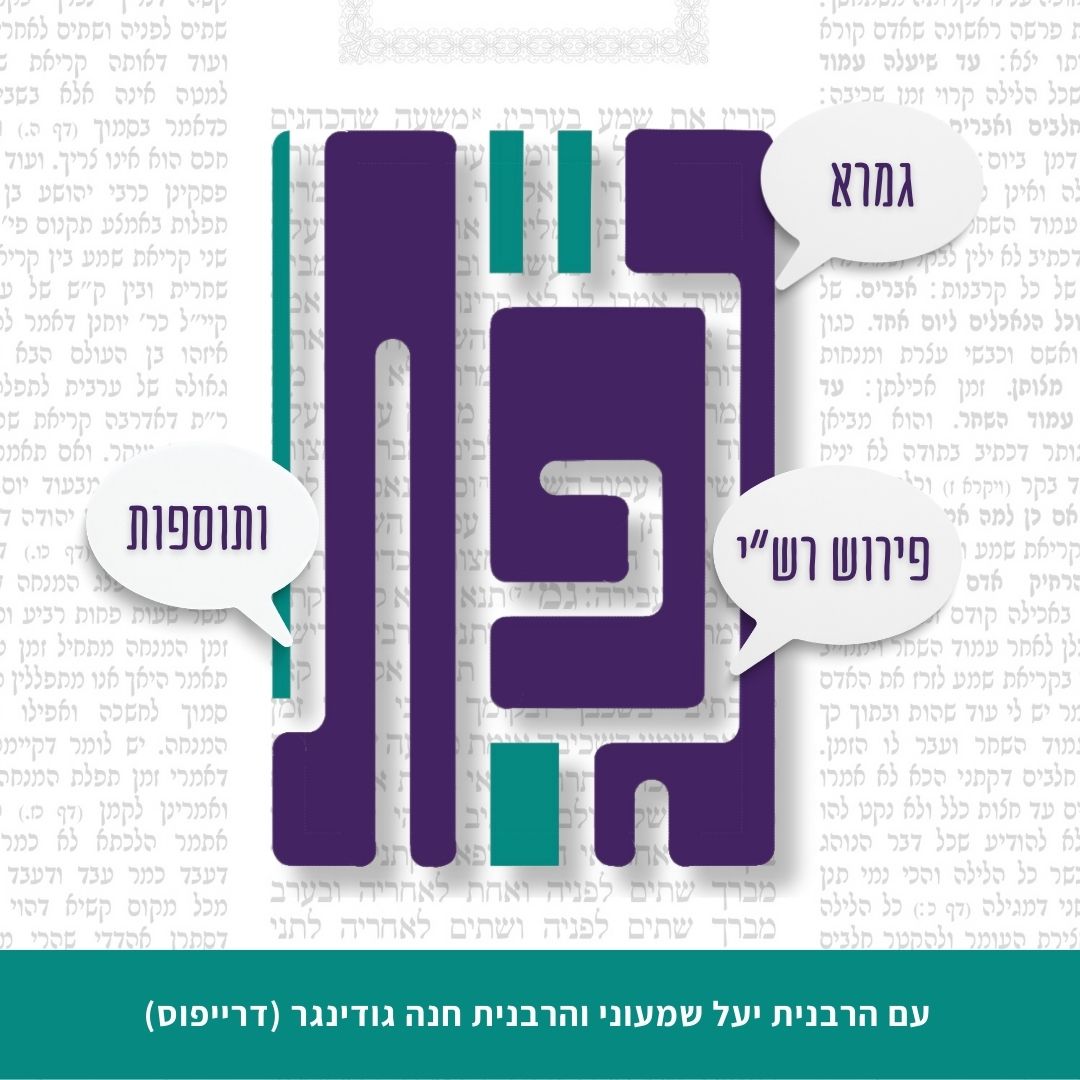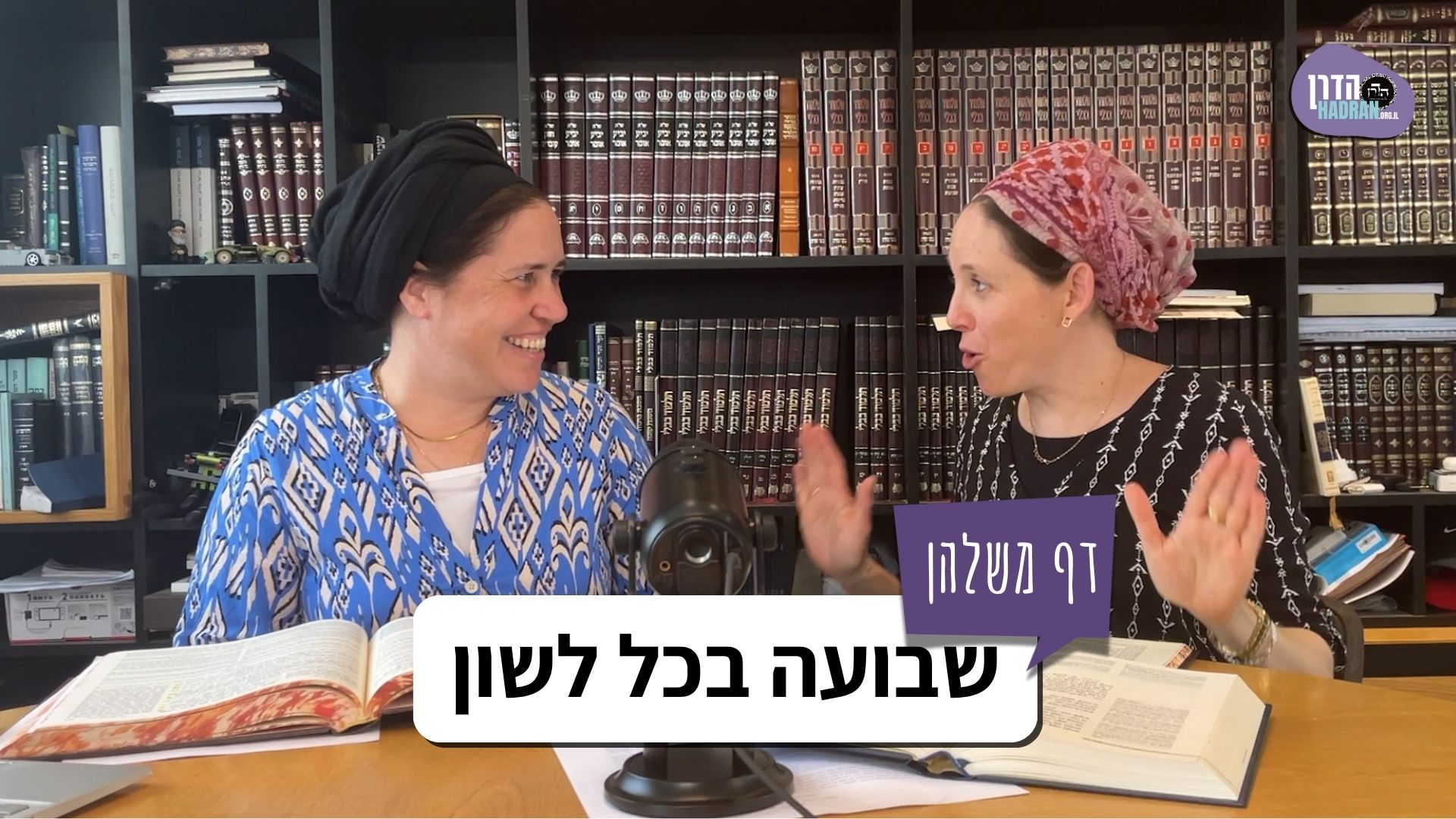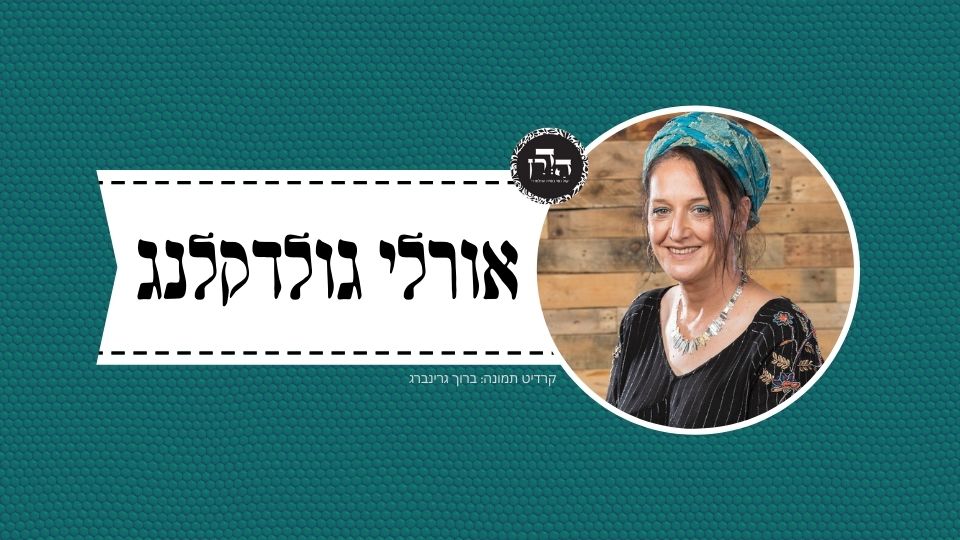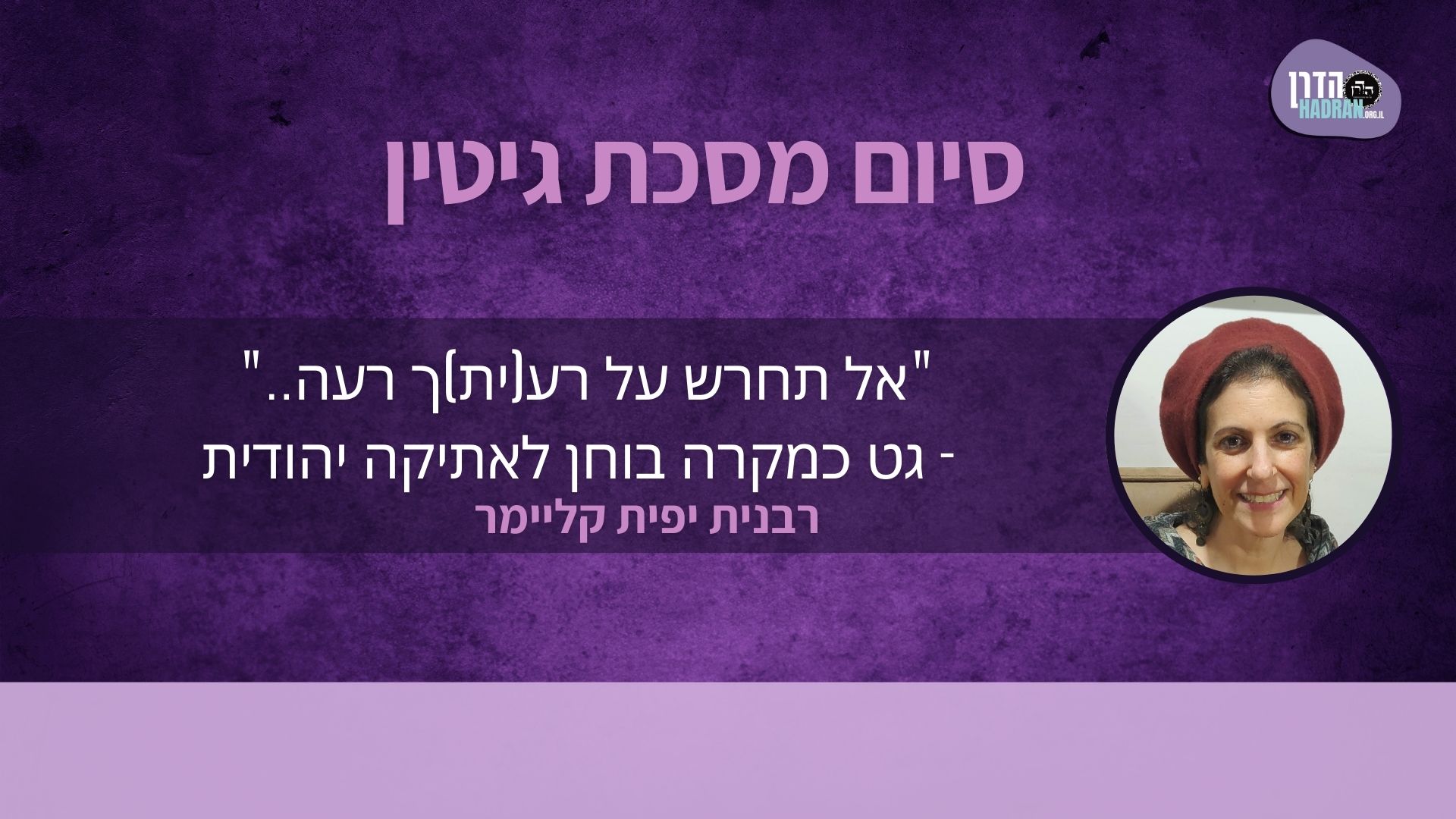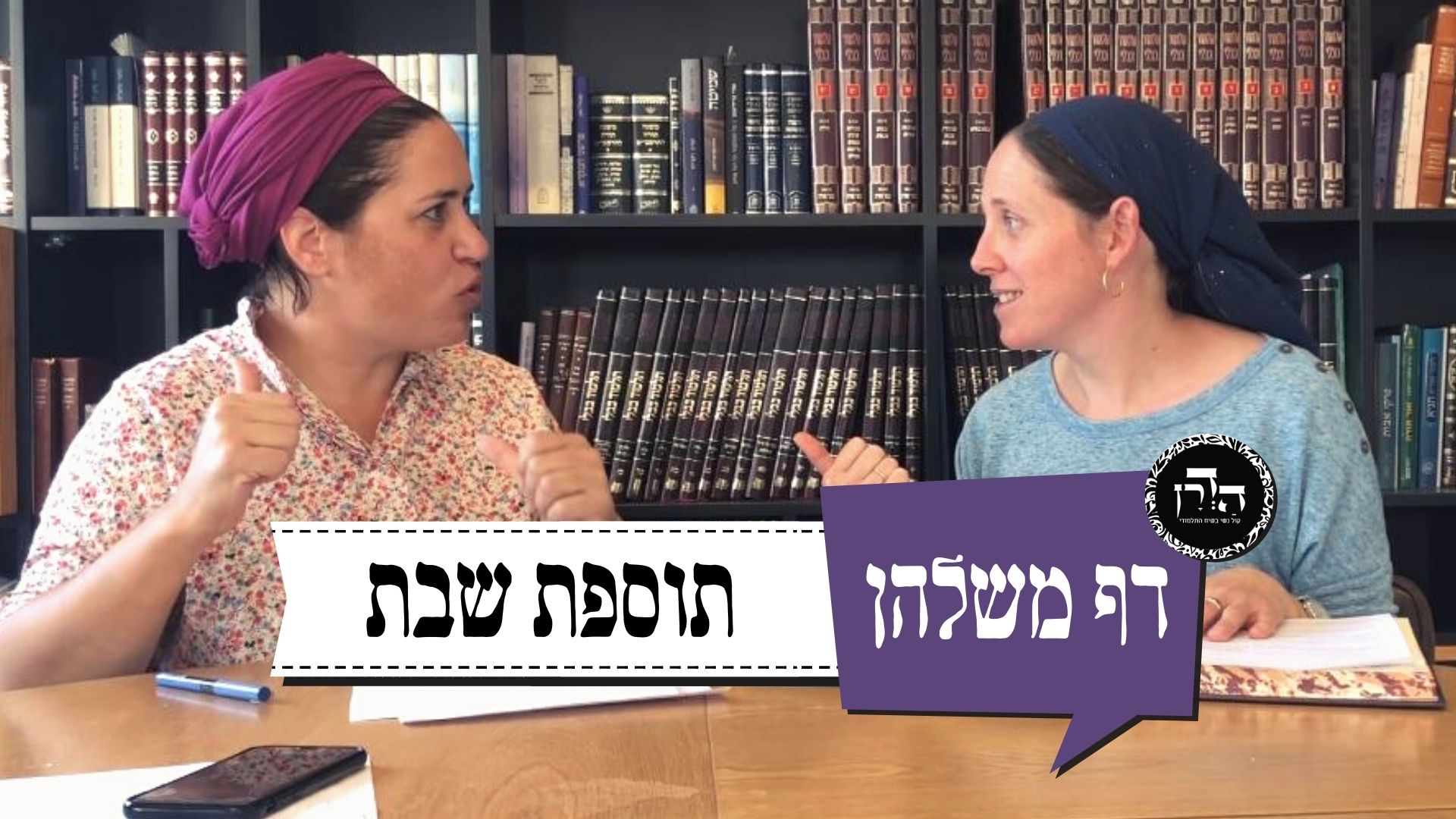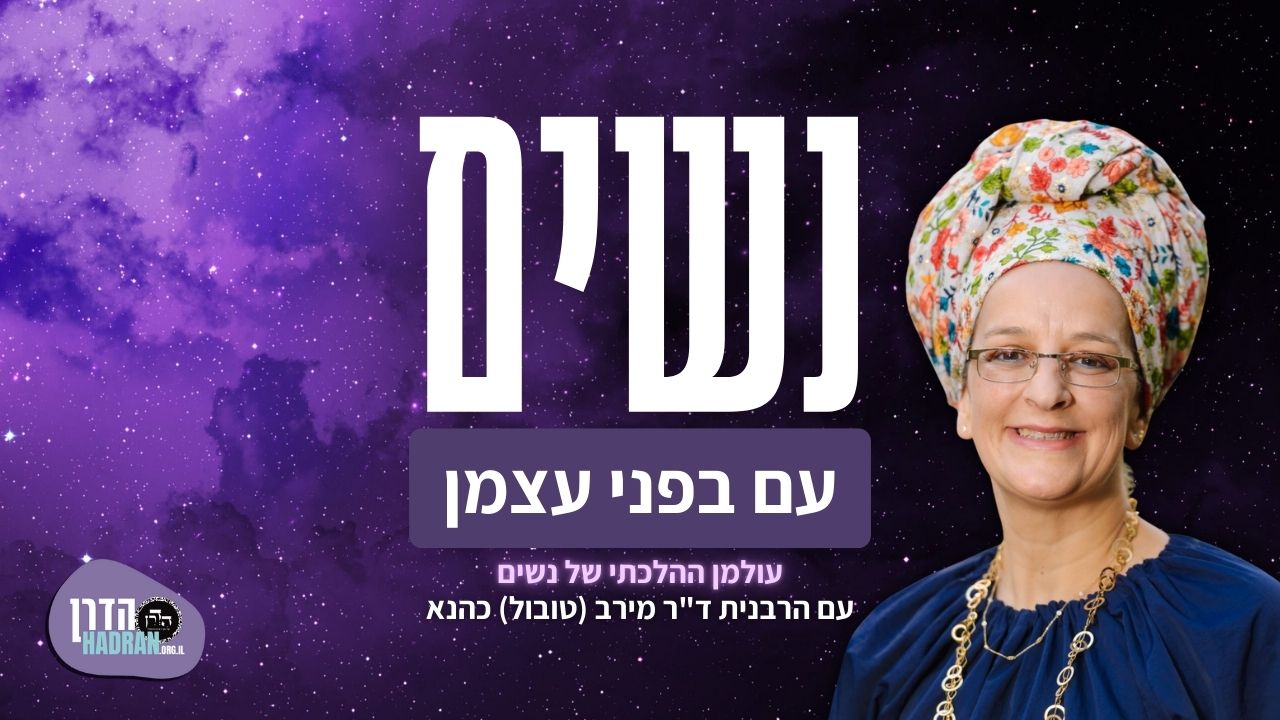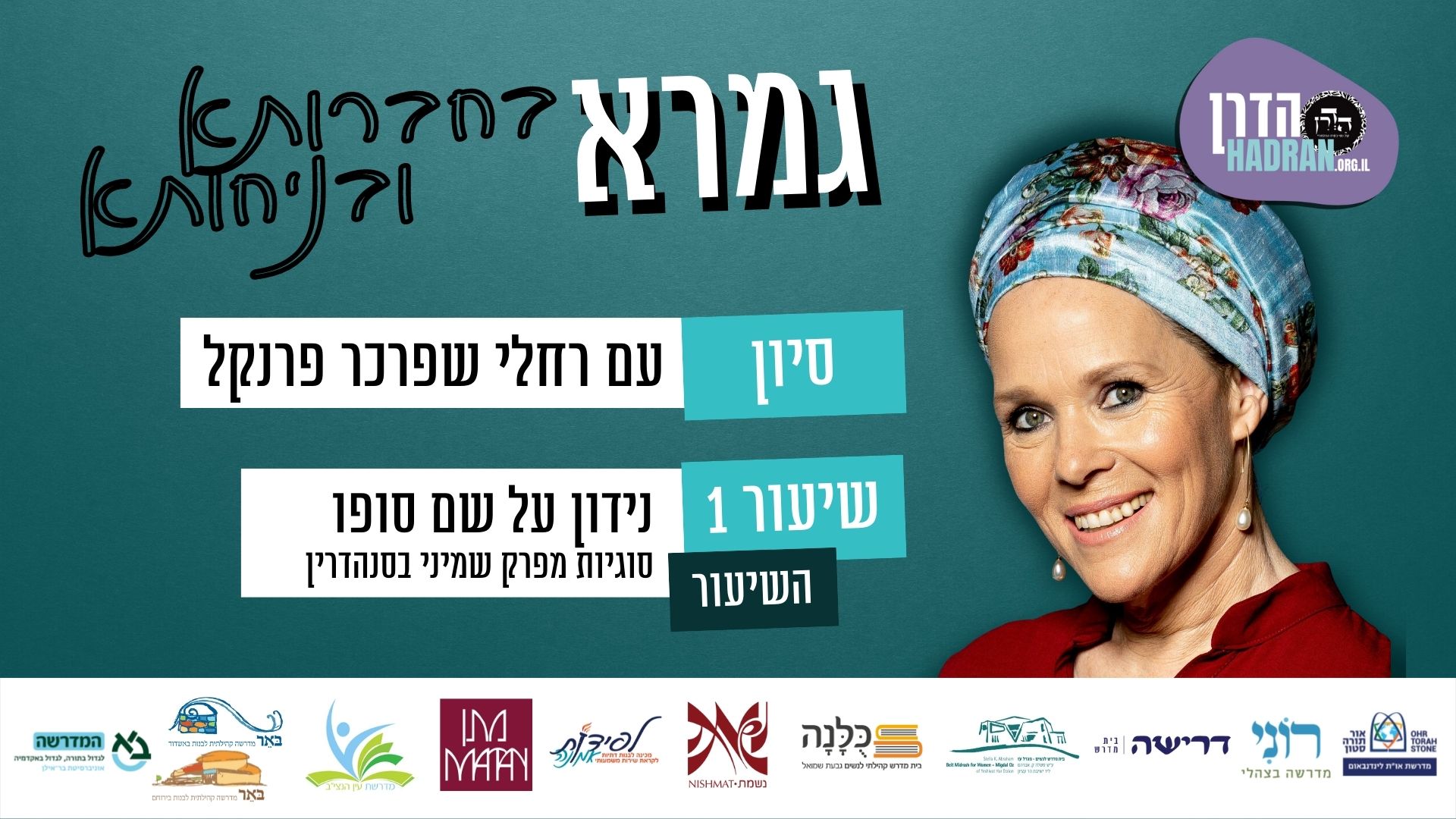המקדיש בעל מום ומקריבו, על מה עובר? מניין דורשים את כל האיסורים? האם בן נח יכול להקריב בעל מום? אם בעל מום לא נחשב לכלום, מדוע מקבלים מלקות על הקרבתו? מניין לנו שהמקדיש תמימים לבדק הבית עובר בלא תעשה? האם תמורה עובד בכהן שממיר בכור או בשר חטאת ואשם? האם יש סיבה להבחין בין בכור לבשר אשם וחטאת? האם כשכהן מקבל בכור בהמה, האם נחשב רשותו לכל דבר ועניין? לדוגמה – האם אפשר לו למכור את הבהמה?
רוצה להקדיש שיעור?
כלים
העמקה
רוצה להבין מה באמת קורה מתחת לפני השטח של הסוגיה?
שיעורים, פודקאסטים והרחבות של מיטב המורות שלנו יפתחו לך עוד זוויות וכיווני חשיבה.
חדשה בלימוד הגמרא?
זה הדף הראשון שלך? איזו התרגשות עצומה! יש לנו בדיוק את התכנים והכלים שיעזרו לך לעשות את הצעדים הראשונים ללמידה בקצב וברמה שלך, כך תוכלי להרגיש בנוח גם בתוך הסוגיות המורכבות ומאתגרות.
פסיפס הלומדות שלנו
גלי את קהילת הלומדות שלנו, מגוון נשים, רקעים וסיפורים. כולן חלק מתנועה ומסע מרגש ועוצמתי.
תמורה ז
סָלְקָא דַּעְתָּךְ אָמֵינָא: בִּשְׁלָמָא מֵעִיקָּרָא לָא יָדַעְנָא אִי הַאי מִיקְּבַע לַשֵּׁם, אֲבָל הָכָא, כֵּיוָן דְּאִינְּכַר שֵׁם — לָא לָקֵי, קָא מַשְׁמַע לַן.
Since it might enter your mind to say that granted, if one does this initially, before the lottery, we do not know if this blemished animal will be designated as the one sacrificed to the Lord or sent to the wilderness. Therefore, the one who consecrated the blemished animal is flogged. But here, since it is already clear that the other animal is to be sacrificed to the Lord, and the one he consecrates will be sent to the wilderness, perhaps he is not flogged for consecrating it. The verse therefore teaches us that this is also a violation of the prohibition and he is flogged.
אָמַר מָר: מִשּׁוּם רַבִּי יוֹסֵי בְּרַבִּי יְהוּדָה אַף קַבָּלַת הַדָּם. מַאי טַעְמָא דְּרַבִּי יוֹסֵי בְּרַבִּי יְהוּדָה? אָמַר קְרָא: ״וּמָעוּךְ וְכָתוּת וְנָתוּק וְכָרוּת וְגוֹ׳״ — זוֹ קַבָּלַת הַדָּם, שֶׁאָמַר רַבִּי יוֹסֵי בְּרַבִּי יְהוּדָה.
§ The Master said above: The Sages said in the name of Rabbi Yosei, son of Rabbi Yehuda: One who sacrifices a blemished animal violates a prohibition against the collection of the blood as well. The Gemara asks: What is the reasoning of Rabbi Yosei, son of Rabbi Yehuda? The Gemara answers: The verse states: “That which has its testicles bruised, or crushed, or torn, or cut, you shall not offer unto the Lord” (Leviticus 22:24). The phrase “You shall not offer unto the Lord” is apparently superfluous, as the Torah already stated earlier: “But whatever has a blemish, you shall not offer” (Leviticus 22:20). Rather, this extra phrase is referring to the collection of the blood, for which Rabbi Yosei, son of Rabbi Yehuda, said that one is liable.
וּלְתַנָּא קַמָּא, הַאי ״לֹא תַקְרִיבוּ״ לְמָה לִי? מִיבְּעֵי לֵיהּ לִזְרִיקַת דָּמִים. וְהָא נָפְקָא לֵיהּ מֵ״עַל הַמִּזְבֵּחַ״? אוֹרְחֵיהּ דִּקְרָא דְּמִשְׁתַּעֵי הָכִי.
The Gemara asks: And according to the first tanna, who holds that one is not liable for collection of the blood per se, why do I need this phrase: “You shall not offer,” stated with regard to damaged testicles? The Gemara answers: He requires it to teach that one is liable for sprinkling the blood. The Gemara challenges: But he derives this from the phrase: “Upon the altar” (Leviticus 22:22), which indicates that one may not sacrifice any part of such an animal on the altar, even its blood. The Gemara answers: With regard to that phrase, the first tanna holds that it is simply the normal manner of the verse that it speaks like this. It does not teach any additional halakha.
וְרַבִּי יוֹסֵי בְּרַבִּי יְהוּדָה נָמֵי, אוֹרְחֵיהּ דִּקְרָא הוּא? אִין הָכִי נָמֵי. אֶלָּא קַבָּלַת הַדָּם מְנָא לֵיהּ? נָפְקָא לֵיהּ מֵהָא: ״וּמִיַּד בֶּן נֵכָר לֹא תַקְרִיבוּ״ — זוֹ הִיא קַבָּלַת הַדָּם שֶׁאָמַר רַבִּי יוֹסֵי בְּרַבִּי יְהוּדָה.
The Gemara challenges: But also according to Rabbi Yosei, son of Rabbi Yehuda, one may claim that this is the normal manner of the verse. Why does he derive a halakha from this phrase? The Gemara answers: Yes, it is indeed so. He does not derive liability for sprinkling of the blood from the phrase “upon the altar.” Rather, from where does he derive the prohibition against collection of the blood? He derives it from this verse: “Neither from the hand of a foreigner shall you offer the bread of your God of any of these, because their corruption is in them; there is a blemish in them; they shall not be accepted for you” (Leviticus 22:25). This verse is referring to the collection of the blood when sacrificing a blemished animal, for which Rabbi Yosei, son of Rabbi Yehuda, said that one is liable.
וּלְתַנָּא קַמָּא, הַאי ״לֹא תַקְרִיבוּ״ לְמָה לִי? מִיבְּעֵי לֵיהּ לְהַאי: סָלְקָא דַּעְתָּךְ אָמֵינָא, הוֹאִיל וְלֹא נִצְטַוּוּ בְּנֵי נֹחַ אֶלָּא עַל מְחוּסַּר אֵבָרִים, לָא שְׁנָא בְּמִזְבֵּחַ דִּידְהוּ וְלָא שְׁנָא בְּמִזְבֵּחַ דִּידַן, קָא מַשְׁמַע לַן.
The Gemara asks: And according to the first tanna, who holds that one is not liable for collection of the blood, why do I need this phrase: Neither from the hand of a foreigner shall you offer? The Gemara answers: He requires it to teach this halakha: It may enter your mind to say that since the descendants of Noah are commanded only with regard to the sacrifice of an animal lacking limbs but they are permitted to sacrifice animals with minor blemishes, perhaps there is no difference if this is performed on their altar outside the Temple or if it is done on our altar in the Temple. Accordingly, one might claim that a gentile may sacrifice a blemished animal in the Temple in Jerusalem. The verse therefore teaches us that they may not sacrifice a blemished animal in such a manner.
לִישָּׁנָא אַחֲרִינָא: רַבִּי יוֹסֵי בְּרַבִּי יְהוּדָה אוֹמֵר: אַף עַל קַבָּלַת הַדָּם. מַאי טַעְמָא? דִּכְתִיב: ״וּמָעוּךְ וְכָתוּת… לֹא תַקְרִיבוּ״ — זוֹ קַבָּלַת הַדָּם, וּזְרִיקָה נָפְקָא לֵיהּ מֵ״עַל הַמִּזְבֵּחַ״.
The Gemara presents an alternative version of the discussion. Rabbi Yosei, son of Rabbi Yehuda, says: One violates a prohibition for the collection of the blood as well. The Gemara asks: What is the reasoning of Rabbi Yosei, son of Rabbi Yehuda? The Gemara answers: As it is written: “That which has its testicles bruised, or crushed, or torn, or cut, you shall not offer unto the Lord” (Leviticus 22:24). This verse is referring to the collection of the blood. And he derives the prohibition against sprinkling the blood from the phrase: “Upon the altar” (Leviticus 22:22).
וּלְרַבָּנַן נָמֵי תִּיפּוֹק לְהוּ זְרִיקָה מִן ״עַל הַמִּזְבֵּחַ״! הָכִי נָמֵי, וְאֶלָּא ״לֹא תַקְרִיבוּ״ דְּמָעוּךְ לְמַאי אֲתָא? מַפְּקִינַן [לֵיהּ] לְבָמַת יָחִיד.
The Gemara objects: And according to the Rabbis as well, who hold that one is not liable for collection of the blood, let them derive liability for sprinkling the blood from the phrase “upon the altar.” The Gemara explains that it is indeed so, that they derive it from that phrase. But for what purpose comes the phrase “You shall not offer” with regard to bruised testicles? We learn from this phrase the prohibition of the sacrifice of a blemished animal even on a private altar, where offerings were sacrificed before the construction of the Temple.
וּלְרַבִּי יוֹסֵי בְּרַבִּי יְהוּדָה, הַאי מִיבְּעֵי לֵיהּ לְבָמַת יָחִיד? אִין הָכִי נָמֵי, אֶלָּא ״תַּקְרִיבוּ״ דְּקַבָּלָה מְנָא לֵיהּ? ״מִיָּד בֶּן נֵכָר לֹא תַקְרִיבוּ״ — זוֹ קַבָּלַת הַדָּם.
The Gemara asks: But according to Rabbi Yosei, son of Rabbi Yehuda, how can he then derive the prohibition against collection of the blood of a blemished animal from the phrase “You shall not offer”? After all, he requires this phrase to render prohibited sacrifice on a private altar. The Gemara answers: Yes, it is indeed so. Rather, where does he find another instance of the term “shall offer” for prohibiting collection of the blood? From the following verse: “Neither from the hand of a foreigner shall you offer the bread of your God of any of these, because their corruption is in them; there is a blemish in them; they shall not be accepted for you” (Leviticus 22:25). This verse is referring to the collection of the blood.
וְרַבָּנַן אִצְטְרִיךְ, סָלְקָא דַּעְתָּךְ אָמֵינָא: הוֹאִיל וּבְנֵי נֹחַ אֵין מְצוִּּוין אֶלָּא עַל מְחוּסַּר אֵבֶר בְּבָמָה דִּלְהוֹן, דִּלְמָא אֲנַן נָמֵי נְקַבֵּיל מִינְּהוֹן? קָא מַשְׁמַע לַן ״מִכׇּל אֵלֶּה״ דְּלָא מְקַבְּלִינַן.
And the Rabbis maintain that this verse is necessary for a different halakha, as it may enter your mind to say that since the descendants of Noah are commanded only with regard to sacrificing an animal lacking a limb on their private altar but are permitted to sacrifice animals with minor blemishes, perhaps we should accept blemished offerings from them in the Temple as well. Therefore, the verse teaches us by the use of the phrase “of any of these” that we do not accept them.
מַתְקֵיף לַהּ רֵישׁ לָקִישׁ: שֶׁמָּא לֹא שָׁנִינוּ אֶלָּא בְּתָם שֶׁנַּעֲשָׂה בַּעַל מוּם, וְעוֹבֵר, דְּאִי בַּעַל מוּם מֵעִיקָּרָא — דִּיקְלָא בְּעָלְמָא הוּא!
§ The baraita cited earlier stated that one who consecrates a blemished animal violates several prohibitions, but it did not differentiate between animals born with blemishes and those that acquired them during their lives. Reish Lakish objects to this: Perhaps we learned the prohibition only with regard to an unblemished animal that became blemished, and only one who consecrates such an animal transgresses the prohibition. As, if he consecrated an animal that was blemished from the outset, it is akin to consecrating a mere date palm, and his presumed intention is to consecrate its value, with the proceeds from its sale being used to purchase an offering. This would be permitted.
אֲמַר לֵיהּ רַבִּי חִיָּיא בַּר יוֹסֵף: ״שָׂרוּעַ וְקָלוּט״ כְּתִיב בַּפָּרָשָׁה, וְהָנֵי בַּעֲלֵי מוּמִין מֵעִיקָּרָא נִינְהוּ.
Rav Ḥiyya bar Yosef said to Reish Lakish: The blemishes mentioned in the phrase in the verse that states: “Either a bull or a lamb that has anything too long or too short” (Leviticus 22:23), are written in the passage that prohibits the sacrifice of blemished animals, and animals such as these are blemished from the outset.
אֲמַר לֵיהּ: שֶׁמָּא לֹא שָׁנִינוּ אֶלָּא בִּתְמוּרָה, דִּתְנַן: חוֹמֶר בַּתְּמוּרָה מִבַּזֶּבַח, שֶׁכֵּן קְדוּשָּׁה חָלָה עָלֶיהָ עַל בַּעַל מוּם קָבוּעַ.
Reish Lakish said to Rav Ḥiyya bar Yosef: Perhaps in the case of animals born with blemishes, we learned the prohibition only with regard to substitution, as we learned in a mishna (16b): There is greater stringency with regard to a substitute than there is with regard to the initial consecration of an offering, as, if one substituted a non-sacred animal with a permanent blemish for a consecrated unblemished animal, the blemished animal is imbued with sanctity. But initial consecration of an animal with such a blemish is effective only with regard to its value, so perhaps one who does so is exempt from punishment.
אֲמַר לֵיהּ רַבִּי יוֹחָנָן: לָא שְׁמִיעַ לָךְ הָא דְּאָמַר רַבִּי יַנַּאי, בַּחֲבוּרָה נִמְנוּ וְגָמְרוּ: הַמַּקְדִּישׁ בַּעַל מוּם לְגַבֵּי מִזְבֵּחַ עוֹבֵר מִשּׁוּם חֲמִשָּׁה שֵׁמוֹת, וְאִי בִּתְמוּרָה נָמֵי — שִׁשָּׁה הָוְויָין, דְּאִיכָּא נָמֵי לָאו דִּתְמוּרָה! אֶלָּא מַאי — בְּבַעַל מוּם מֵעִיקָּרוֹ? אַמַּאי לָקֵי? דִּיקְלָא בְּעָלְמָא הוּא!
Rabbi Yoḥanan said to Reish Lakish: Didn’t you hear that which Rabbi Yannai says, that when the Sages sat in a group, their opinions were counted and they concluded: One who consecrates blemished animals for sacrifice on the altar violates five separate categories of prohibition. But if the baraita is also referring to a case of substitution, there are six categories, as there is also the prohibition of performing substitution. Reish Lakish responded: Rather, what can you say? Is the baraita speaking of one who consecrated an animal that is blemished from the outset? Why then is he flogged? It is akin to one who consecrates a mere date palm.
אֲמַר לֵיהּ: דִּיקְלָא — לָאו זִילָא מִילְּתָא, מִין עֵצִים הוּא; בַּעַל מוּם מֵעִיקָּרָא — זִילָא מִילְּתָא, כֵּיוָן דִּשְׁבֵיק תְּמִימִים וְאַקְדֵּישׁ בַּעֲלֵי מוּמִין — מִיחַיַּיב.
Rabbi Yoḥanan said to Reish Lakish: There is a difference between the cases. When one consecrates a date palm, the matter is not disgraceful, as it is a type of wood that one may burn on the altar. Therefore, he is not flogged. By contrast, when one consecrates an animal that is blemished from the outset, the matter is disgraceful. Since he forsook unblemished animals and consecrated blemished animals, he is liable to be flogged.
לִישָּׁנָא אַחֲרִינָא, אֲמַר לֵיהּ: אֲפִילּוּ הָכִי בַּזְיָא מִילְּתָא, דְּדֶקֶל לֵיכָּא בְּמִינוֹ — לָא לָקֵי, לְאַפּוֹקֵי בַּעַל מוּם, כֵּיוָן דְּאִיכָּא בְּמִינוֹ — לָקֵי.
The Gemara presents an alternative version of the previous point. Rabbi Yoḥanan said to Reish Lakish: Nevertheless, the matter of consecrating an animal blemished from the outset is disgraceful. For in the case of a date palm, as there is no item of its type that can be sacrificed as an offering, he is not flogged for consecrating it. This is to the exclusion of a blemished animal; since there are items of its type that can be sacrificed as offerings, i.e., unblemished animals, he is flogged for consecrating it.
אָמַר רָבָא: הַשְׁתָּא דַּאֲמוּר טַעְמָא דְּבַעַל מוּם דְּלָקֵי — מִשּׁוּם דְּבַזְיָא מִילְּתַיְיהוּ, אֲפִילּוּ (למקדיש) [מַקְדֵּישׁ] לֵיהּ לִדְמֵי נְסָכִים — נָמֵי לָקֵי.
Rava said: Now that it has been said that the reason that one who consecrates a blemished animal is flogged is due to the fact that the matter is disgraceful, then even one who consecrates it to be sold and its money used for purchasing libations should be flogged as well, as consecrating a blemished animal is in and of itself a disgraceful act.
תַּנְיָא כְּוָותֵיהּ דְּרָבָא:
The Gemara notes: It is taught in a baraita in accordance with the opinion of Rava:
״נְדָבָה תַּעֲשֶׂה אֹתוֹ״ — זֶה קׇדְשֵׁי בֶּדֶק הַבַּיִת, וְאֵין לִי אֶלָּא נְדָבָה, נֶדֶר מִנַּיִן? תַּלְמוּד לוֹמַר: ״וּלְנֵדֶר״.
A vow offering differs from a gift offering in that if it dies prematurely, one is liable to replace the former but not the latter. The verse states: “Either a bull or a lamb that has anything too long or too short, you may offer it for a gift, and for a vow it shall not be accepted” (Leviticus 22:23). The phrase “You may offer it for a gift” is referring to a blemished animal consecrated for Temple maintenance. And I have derived only that one may consecrate it in the manner of a gift; from where is it derived that one may consecrate it in the manner of a vow as well? The verse states: “You may offer it for a gift and for a vow.”
יָכוֹל אֲפִילּוּ קׇדְשֵׁי מִזְבֵּחַ? תַּלְמוּד לוֹמַר ״וּלְנֵדֶר לֹא יֵרָצֶה״, זֶה קׇדְשֵׁי מִזְבֵּחַ. וְאֵין לִי אֶלָּא נֶדֶר, נְדָבָה מִנַּיִן? תַּלְמוּד לוֹמַר ״נְדָבָה״. רַבִּי אוֹמֵר: ״לֹא יֵרָצֶה״ — בְּהַרְצָאַת גּוּפוֹ הַכָּתוּב מְדַבֵּר.
One might have thought that one can consecrate blemished animals even as offerings to be sacrificed on the altar. Therefore, the verse states: “And for a vow it shall not be accepted.” This is referring to offerings sacrificed on the altar, for which acceptance is a relevant term. And I have derived only that one may not consecrate such an animal as a vow offering. From where is it derived that one may not do so as a gift offering? The verse states: “A gift…and for a vow it shall not be accepted.” Rabbi Yehuda HaNasi says: In employing the phrase “It shall not be accepted,” the verse is speaking of consecration that depends upon the acceptance of the animal’s body, i.e., consecration as an offering. Nevertheless, they may be consecrated for Temple maintenance.
הַיְינוּ תַּנָּא קַמָּא! מַאי לָאו בְּהָא קָמִיפַּלְגִי, דְּתַנָּא קַמָּא סָבַר: אֲפִילּוּ אַקְדְּשֵׁיהּ לִדְמֵי נְסָכִים — נָמֵי לָקֵי, וְרַבִּי סָבַר: בְּהַרְצָאַת גּוּפוֹ — נָמֵי לָקֵי, אֲבָל בִּדְמֵי נְסָכִים — לָא לָקֵי. שְׁמַע מִינַּהּ.
The Gemara asks: The opinion of Rabbi Yehuda HaNasi is identical to the opinion of the first tanna. What is their dispute? The Gemara suggests: What, is it not that they disagree with regard to this, that the first tanna holds that even if one consecrates it to be sold and its money is used for purchasing libations, he is flogged as well; and Rabbi Yehuda HaNasi holds that in a case where there is acceptance of the animal’s body, the one who consecrated it is indeed flogged, but if one consecrates it to be sold and its money is used for purchasing libations, he is not flogged. Learn from the baraita that the first tanna holds that consecration toward libations is equivalent to consecration as an offering, as Rava suggested above.
וְאֶלָּא ״אוֹתוֹ״ לְמָה לִי? לְכִדְתַנְיָא: ״נְדָבָה תַּעֲשֶׂה אוֹתוֹ״ — ״אוֹתוֹ״ תַּעֲשֶׂה נְדָבָה, וְאִי אַתָּה עוֹשֶׂה תָּמִים נְדָבָה לְבֶדֶק הַבַּיִת. מִיכָּן אָמְרוּ: הַמַּקְדִּישׁ תְּמִימִים לְבֶדֶק הַבַּיִת — עוֹבֵר בַּעֲשֵׂה.
§ The Gemara analyzes the wording of Leviticus 22:23: But why do I need the word “it,” in the phrase: “You may offer it”? What does this serve to exclude? It is required for that which is taught in a baraita: When the verse states: “You may offer it for a gift,” this teaches that you may offer this blemished animal as a gift for Temple maintenance, but you may not offer an unblemished animal as a gift for Temple maintenance. From here the Sages said: One who consecrates unblemished animals for Temple maintenance transgresses a positive mitzva.
וּמִנַּיִן אַף בְּלֹא תַעֲשֶׂה — שֶׁנֶּאֱמַר ״וַיְדַבֵּר ה׳ אֶל מֹשֶׁה לֵּאמֹר״ — לִימֵּד עַל הַפָּרָשָׁה שֶׁהִיא בְּלָאו, דִּבְרֵי רַבִּי יְהוּדָה.
And from where is it derived that he has transgressed a prohibition as well? As it is stated at the beginning of that passage: “And the Lord spoke to Moses, saying [lemor]” (Leviticus 22:1). This teaches that every mitzva stated in the passage is considered a prohibition. This is the statement of Rabbi Yehuda.
אֲמַר לֵיהּ רַבִּי לְבַר קַפָּרָא: מַאי מַשְׁמַע? אֲמַר לֵיהּ דִּכְתִיב ״לֵאמֹר״ — ״לֹא״ נֶאֱמַר בַּדְּבָרִים. בֵּי רַבִּי אָמְרִי: ״לֹא אֱמוֹר״.
The Gemara relates that Rabbi Yehuda HaNasi said to bar Kappara: From where may it be inferred that every mitzva stated in the passage is considered a prohibition? Bar Kappara said to him that this is as it is written: As the verse states: “Lemor,” the term can be read as though it states: No [lo], an expression of prohibition, is stated [ne’emar] with regard to the subsequent matters. In the school of Rabbi Yehuda HaNasi they say: The term should be understood to mean that God said to Moses: No [lo] shall you say [emor] to them these matters.
אִיתְּמַר: הַמַּעֲלֶה אֵבְרֵי בַּעֲלֵי מוּמִין לְגַבֵּי מִזְבֵּחַ, אָמַר רָבָא: עוֹבֵר מִשּׁוּם ״בַּל תַּקְטִירוּ כּוּלּוֹ״ וּמִשּׁוּם ״בַּל תַּקְטִירוּ מִקְצָתוֹ״. אָמַר אַבָּיֵי: אֵין לוֹקִין עַל לָאו שֶׁבִּכְלָלוֹת.
§ A baraita above (6b) stated that one who sacrifices a blemished animal on the altar transgresses the prohibition “You may not burn all of it,” and if he sacrificed part of it, he transgresses the prohibition “You may not burn part of it.” With regard to this it was stated: In the case of one who brings up the limbs of blemished animals onto the altar, Rava says that he violates both the prohibition of “You may not burn all of it;” and the prohibition of “You may not burn part of it,” and he receives two sets of lashes. Abaye says: One is not flogged twice for violating a general prohibition. Since one verse serves as the source for both prohibitions, one is not flogged twice for its violation.
מֵיתִיבִי: הַמַּקְדִּישׁ בַּעֲלֵי מוּמִין לְגַבֵּי מִזְבֵּחַ — עוֹבֵר מִשּׁוּם חֲמִשָּׁה שֵׁמוֹת, תְּיוּבְתָּא דְּאַבָּיֵי.
The Gemara raises an objection from the Tosefta (1:10): One who consecrates blemished animals for sacrifice on the altar violates five separate categories of prohibition. The aforementioned baraita enumerated these and included both the prohibition “You may not burn all of it” and the prohibition “You may not burn part of it,” indicating that one is flogged for transgressing each of these prohibitions. This is apparently a conclusive refutation of the opinion of Abaye.
אָמַר אַבָּיֵי: בְּגַבְרֵי קָתָנֵי! אִי בְּגַבְרֵי — ״עוֹבֵר״?! ״עוֹבְרִין״ מִיבְּעֵי לֵיהּ! אֶלָּא פְּשִׁיטָא בְּחַד גַּבְרָא, וּתְיוּבְתָּא דְאַבָּיֵי.
Abaye said: The baraita is teaching the halakha with regard to different men, one of whom burned an entire animal on the altar, and one of whom burned only part of it. One person cannot be liable for both prohibitions. The Gemara challenges: If it is teaching the halakha of different men, why does it say: Violates, in the third person singular? It should have stated: Violate, in the plural. Rather, it is obvious that the baraita is referring to one man, and this is apparently a conclusive refutation of the opinion of Abaye.
אָמַר אַבָּיֵי: אַפֵּיק ״הַקְטָרַת מִקְצָתוֹ״, וְעַיֵּיל ״קַבָּלַת הַדָּם״. קַבָּלַת דָּם — לְרַבִּי יוֹסֵי בְּרַבִּי יְהוּדָה אִית לֵיהּ, לְתַנָּא קַמָּא לֵית לֵיהּ? קַשְׁיָא!
Abaye said: From the list of five prohibitions, remove that of burning part of the offering, and insert the collection of the blood, which means that there is only one prohibition for burning the offering, and the number of prohibitions still remains at five. The Gemara raises a difficulty: With regard to the collection of the blood, Rabbi Yosei, son of Rabbi Yehuda, is of the opinion that one transgresses that prohibition, but the first tanna is not of that opinion. How, then, can Abaye contradict the first tanna? The Gemara concludes: It is difficult.
לִישָּׁנָא אַחֲרִינָא: וְהָא מִדְּסֵיפָא רַבִּי יוֹסֵי בְּרַבִּי יְהוּדָה הִיא, רֵישָׁא רַבָּנַן. תְּיוּבְתָּא דְאַבָּיֵי, תְּיוּבְתָּא.
The Gemara presents an alternative version of the previous point: But from the fact that the latter clause of the baraita is in accordance with the opinion of Rabbi Yosei, son of Rabbi Yehuda, it may be inferred that the first clause is in accordance with the opinion of the Rabbis. The Gemara concludes: The refutation of the opinion of Abaye is indeed a conclusive refutation.
מַתְנִי׳ הַכֹּהֲנִים מְמִירִין בְּשֶׁלָּהֶן, וְיִשְׂרָאֵל מְמִירִין בְּשֶׁלָּהֶן. אֵין הַכֹּהֲנִים מְמִירִין לֹא בְּחַטָּאת וְלֹא בְּאָשָׁם וְלֹא בִּבְכוֹר. אָמַר רַבִּי יוֹחָנָן בֶּן נוּרִי: מִפְּנֵי מָה אֵין מְמִירִין בִּבְכוֹר? אָמַר לוֹ רַבִּי עֲקִיבָא: חַטָּאת וְאָשָׁם מַתָּנָה לַכֹּהֵן, וּבְכוֹר מַתָּנָה לַכֹּהֵן. מָה חַטָּאת וְאָשָׁם אֵין מְמִירִין בּוֹ, אַף בְּכוֹר אֵין מְמִירִין בּוֹ.
MISHNA: The priests substitute for their own offerings and Israelites substitute for their own offerings. The priests substitute neither for a sin offering, nor for a guilt offering, nor for a firstborn offering that they received from an Israelite, as those animals are not their property, and one does not substitute an animal that is not his. Rabbi Yoḥanan ben Nuri said: For what reason can priests not substitute for a firstborn offering that they received from an Israelite? Does it not belong to them? Rabbi Akiva said to him: A sin offering and a guilt offering are a gift to the priest, and the firstborn offering is likewise a gift to the priest. Just as in the cases of a sin offering and a guilt offering, priests that receive one of them from an Israelite cannot substitute for it, so too with regard to a firstborn offering, priests that receive it from an Israelite cannot substitute for it.
אָמַר רַבִּי יוֹחָנָן בֶּן נוּרִי: מָה לוֹ אִם אֵינוֹ מֵמִיר בְּחַטָּאת וְאָשָׁם, שֶׁאֵין זָכִין בָּהֶן בְּחַיֵּיהֶן, תֹּאמַר בִּבְכוֹר שֶׁזָּכִין בּוֹ בְּחַיָּיו! אָמַר לוֹ רַבִּי עֲקִיבָא: וַהֲלֹא כְּבָר נֶאֱמַר ״וְהָיָה הוּא וּתְמוּרָתוֹ יִהְיֶה קּוֹדֶשׁ״, הֵיכָן קְדוּשָּׁה חָלָה עָלָיו? בְּבֵית הַבְּעָלִים, אַף תְּמוּרָה בְּבֵית הַבְּעָלִים.
Rabbi Yoḥanan ben Nuri said: What is this comparison for him? If a priest does not substitute for a sin offering and a guilt offering, which priests do not acquire during the animals’ lifetimes, will you say the same with regard to a firstborn, which priests do acquire during the animal’s lifetime? Rabbi Akiva said to him: But isn’t it already stated: “Then both it and its substitute shall be sacred” (Leviticus 27:10), which juxtaposes the consecration of the consecrated animal with that of its non-sacred substitute? Where is the consecrated animal imbued with sanctity? It is in the house of the owner. So too, the substitute animal is consecrated in the house of the owner. Therefore, the priest cannot substitute for the firstborn that he received because he is not the owner that initially consecrated it.
גְּמָ׳ תְּנַן הָתָם: בְּכוֹר מוֹכְרִין אוֹתוֹ תָּם חַי, וּבַעַל מוּם חַי וְשָׁחוּט, וּמְקַדְּשִׁין בּוֹ הָאִשָּׁה. אָמַר רַב נַחְמָן אָמַר רַבָּה בַּר אֲבוּהּ: לֹא שָׁנוּ אֶלָּא בִּזְמַן הַזֶּה, הוֹאִיל וְאִית לֵיהּ לְכֹהֵן זְכִיָּיה בְּגַוֵּויהּ (הוֹאִיל וְיֵשׁ לַכֹּהֵן שׁוּתָּפוּת בּוֹ), אֲבָל בִּזְמַן שֶׁבֵּית הַמִּקְדָּשׁ קַיָּים, כֵּיוָן דְּתָם לְהַקְרָבָה הוּא דְּקָאֵי — אֵין מוֹכְרִין אוֹתוֹ תָּמִים חַי.
GEMARA: We learned in a mishna elsewhere (Ma’aser Sheni 1:2): With regard to a firstborn offering, one may sell it if it is unblemished only while it is still alive, as after it is slaughtered outside the Temple one may not derive benefit from it, and if it was offered in the Temple, one may not sell sacrificial meat. And if it is blemished, one may sell it while it is alive or after it has been slaughtered. And a priest can betroth a woman with it, as it is his property. Rav Naḥman says that Rabba bar Avuh says: They taught this halakha only with regard to the present, when there is no Temple, since the priest has the ability to acquire the firstborn offering. But when the Temple is standing, since the unblemished firstborn animal stands for sacrifice, one may not sell it unblemished while it is alive.
אֵיתִיבֵיהּ רָבָא לְרַב נַחְמָן: מוֹכְרִין אוֹתוֹ תָּמִים חַי — חַי אִין, שָׁחוּט לָא. אֵימַת? אִילֵּימָא בִּזְמַן הַזֶּה — מִי אִיכָּא תָּם שָׁחוּט? אֶלָּא פְּשִׁיטָא בִּזְמַן שֶׁבֵּית הַמִּקְדָּשׁ קַיָּים, וְקָתָנֵי נָמֵי: מוֹכְרִין אוֹתוֹ תָּמִים חַי, (אַלְמָא אִית לֵיהּ לְכֹהֵן זְכִיָּיה בְּגַוֵּויהּ)!
Rava raised an objection to Rav Naḥman: The mishna teaches that one may sell an unblemished firstborn offering while it is alive. One can infer that while it is alive, yes, one may sell it, but once it has been slaughtered, one may not sell it. When is this the halakha? If we say that this mishna is speaking in the present, is there an unblemished, slaughtered, firstborn offering? Offerings are not slaughtered in the present day. Rather, it is obvious that the mishna is speaking of the time when the Temple is standing. And yet, the mishna still teaches that one may sell an unblemished firstborn offering while it is alive, which contradicts the statement of Rav Naḥman.
לָא, לְעוֹלָם בִּזְמַן הַזֶּה, מִי קָתָנֵי: מוֹכְרִין אוֹתוֹ תָּמִים חַי — אִין, שָׁחוּט — לָא? הִא גּוּפַאּ אֲתָא לְאַשְׁמוֹעִינַן, דְּבִזְמַן הַזֶּה נָמֵי מוֹכְרִין אוֹתוֹ תָּמִים חַי.
Rav Naḥman responds: No; actually the mishna is referring to the halakha in the present. I disagree with the above inference. Does the mishna explicitly teach: One may sell an unblemished firstborn offering while it is alive, yes, but once it has been slaughtered, no? The mishna does not mean to rule out selling a slaughtered animal; rather, it is coming to teach us the matter itself, that even in the present, one may sell it unblemished while it is alive.
